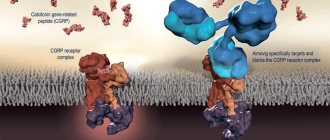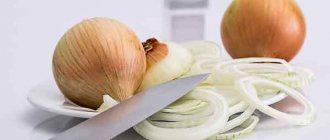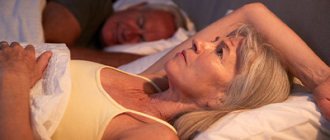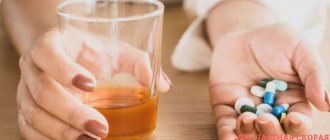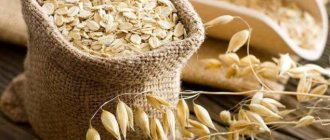Scientific research indicates that approximately 10% of the world's population suffers from insomnia, and a huge number of people claim that they cannot sleep without watching TV. However, TV, smartphone and computer do nothing to promote sleep. Rather, on the contrary, the blue light emitted by screens destroys the sleep hormone in our bodies.
The hypnotic effect of television is just a ritual to which a person is accustomed. The brains of those who watch TV at night are already programmed that sooner or later sleep will come after watching TV. A similar reaction occurs in the brains of those who like to read every night before bed, but for them the book serves as such a signal.
Exactly the same ritual that promotes good sleep can be evening tea drinking. And if you choose the right components for tea, you can achieve a hypnotic effect no worse than from less safe tablets.
Causes of insomnia
There are many reasons for sleep disturbances, from domestic to medical:
- Change of residence;
- Climate change;
- Pain of various origins;
- Metabolic disease;
- Stomach problems;
- The food intake system is disrupted;
- Nervous disorders;
- Depressive states.
In the last two cases, the judicious use of medicinal herbs can completely eliminate the sleep problem. Plants contain many useful components, some of which directly affect the functioning of the human nervous and cardiovascular systems.
- Flavonoids , which are included in most plants for insomnia, have the effect of muscle relaxation. The spasm that blocks the nervous system is relieved and a sedative phase begins.
- Cardenolides in medicinal herbs have antiarrhythmic and cardiotonic effects on the human body. In other words, in medicinal doses they help the heart function.
Herbal tea for sleep: benefits and harms
Content:
- Herbal tea for sleep: benefits and harms
- Chamomile
- Valerian
- Lavender
- Melissa
- Hop
- St. John's wort
- magnolia bark
- Passionflower
- Ashwagandha
Until recently, herbal teas were perceived only as part of traditional or alternative medicine. But in the process of modern scientific research it has been revealed that some herbs have a hypnotic effect. We’ll talk about which herbs have these properties a little later, but for now let’s talk about some rules and warnings.
Although herbal teas are considered a safe treatment and in many cases are useful even for children, they also have side effects. Some of them can cause allergic reactions and are therefore contraindicated for allergy sufferers, while others can cause heartburn and stomach pain, making them unsuitable for people with gastritis or peptic ulcers.
Some herbal teas may be contraindicated in pregnant women, while breastfeeding, in those with autoimmune diseases, or before surgery. They may also be prohibited during treatment with prescription sedatives, antidepressants, anti-tuberculosis or anti-inflammatory drugs, blood thinners and blood pressure lowering drugs.
Hawthorn
Hawthorn flowers are collected before they open, in dry weather after the dew has disappeared. The berries are collected at the end of the ripening season. The shelf life of flowers is 2 years, berries - 8 years.
Contraindications
The fruits of red hawthorn are strictly contraindicated for people with a history of diseases of the cardiovascular system and kidneys.
Tea recipe for insomnia
| Ingredients | For 20 grams of dry hawthorn berries you will need 200 grams of water |
| How to cook | Pour boiling water over the berries in a thermos, close and wait 15 minutes |
| Treatment system | Take one hour before bedtime. Until the condition stabilizes. |
The benefits of herbal medicine
Herbs for sleep and calm have been helping people for centuries. This treatment has stood the test of time and has reached the scientific level from traditional medicine. Practicing medical specialists have an arsenal of medicinal herbs and herbs that they prescribe to their patients. This branch of medicine continues to actively develop because it has a number of advantages:
- Herbs act comprehensively and help with several problems at the same time. Many types of plants used in the treatment of insomnia have a beneficial effect on the cardiovascular, nervous system and gastrointestinal tract.
- The development of the effect is mild and the risk of overdose is correspondingly lower.
- Natural composition without preservatives and other chemical impurities.
- Easily purchased at a pharmacy without a prescription at an affordable price.
Interesting fact! Our country does not have a formal herbal medicine training system approved by the Ministry of Health. In large cities, there are departments where doctors with a specialty as a herbalist and people without a medical education can take training courses. The latter are studying in the specialty “Russian herbalism”. In fact, anyone can gain knowledge of herbal medicine.
Black elderberry
Elderberry flowers are dried naturally, and berry bunches are dried in dryers. The shelf life of flowers is 24 months, dry berries are stored for 6 months.
Contraindications
A large amount of fresh black elderberry berries is fraught with poisoning - diarrhea, vomiting. Young shoots are toxic. Roots and bark in overdose cause inflammation of the gastrointestinal tract and large intestine.
Fresh inflorescences contain amygdalin, which is converted into hydrocyanic acid.
Black elderberry can be used for treatment only in dried form.
Elderberries are contraindicated:
- pregnant women;
- nursing women;
- people suffering from chronic intestinal diseases;
- for ulcerative colitis;
- diabetes (diabetes insipidus).
Recipe for elderberry root decoction for insomnia
| Ingredients | 1.5 tbsp. l. dried black elderberry roots crushed in a coffee grinder and 250 ml water |
| How to cook | Boil over low heat for a quarter of an hour. Leave covered for 30 minutes. |
| Treatment system | Drink immediately before going to bed. Use as needed. The herb has a strong sedative effect. |
Hop
Many people know hops exclusively as an ingredient in beer. But in folk medicine, hop cones have been used as a medicine for many centuries. One of the indications for drinking hop tea is insomnia. In addition, today there is already scientific evidence of the beneficial effect of this plant on the quality of night's rest. Research shows that hops have a moderate sleeping effect, but if you add valerian root extract to the drink, it will become even easier to overcome insomnia.
In addition to its sleeping effect, a drink made from hop cones has an anti-inflammatory effect, helps the body fight infection, removes toxins, improves heart function, and also has a positive effect on brain cells.
To avoid excessively enhancing the sedative effect of hop tea, the drink should not be consumed together with psychotropic drugs. In some cases, herbal tea can cause allergies, so it is contraindicated for allergy sufferers. Hop cones contain substances that help increase the amount of the female hormone estrogen in the body, which is why men should not get too carried away with the drink. Hop tea is also contraindicated for women with a malignant tumor in the mammary gland, pregnant women and people with kidney or liver diseases.
Preparation: pour 5-7 g of crushed hop cones into 250 ml of hot water, bring to a boil, leave for a few more minutes.
Valerian
Valerian rhizomes are collected in September or March. They are dug out with a shovel, then cleared of soil, washed and dried naturally. Drying in electrical cabinets is allowed at a temperature not exceeding 35° C. Stored in paper packages for no more than 3 years.
Contraindications
In case of chronic enterocolitis, valerian cannot be used for treatment. High probability of relapse of the disease.
Long-term treatment with valerian-based drugs can provoke:
- state of anxiety and restlessness;
- headache;
- constipation;
- disruption of the gastrointestinal tract.
Recipe for valerian infusion for neurotic insomnia
| Ingredients | Valerian roots ground in a coffee maker in the amount of 2 tsp. and half a liter of drinking water. |
| How to cook | Pour boiling water over valerian. Leave covered for 10-15 minutes. |
| Treatment system | Drink like regular tea, course 21 days. Valerian has pronounced properties of a mild sedative. |
Lavender
It is well known that the aroma of lavender has calming properties. But in order to improve your sleep, fall asleep faster and easier, you can use not only aroma lamps, but also drink tea with the flowers of this fragrant plant. This drink has a slightly sweet taste and pleasant aroma.
The homeland of lavender is the Mediterranean, whose inhabitants have known about the amazing properties of this plant since antiquity. Nowadays, this plant is easily grown far beyond the borders of its historical homeland, which makes lavender very accessible as a folk herbal remedy. Moreover, tea with lavender flowers has more than enough beneficial properties.
Scientific research shows that lavender stimulates sleep and improves its quality for a long time, which makes it an excellent remedy for combating insomnia, including those caused by anxiety. Scientists from the University of Vienna have found scientific evidence [4] that lavender essential oils have a beneficial effect on sleep quality, improve a person’s mental and physical well-being, and do not cause an unwanted sedative effect. By the way, today lavender essential oils are one of the most studied substances in this group.
Researchers from the University of Southampton (UK) studied the effect of lavender on the body of adults. It turned out that the sleep of people who took plant extracts improved by 20%. Another study was conducted in Taiwan, where lavender drinks were offered to women who had recently given birth to a child. It turned out that those who drank lavender tea felt less tired. Another study was conducted among middle-aged women. Participants in the experiment who consumed lavender products twice a week for 3 months had decreased heart rate and improved sleep quality.
Drinking lavender tea has many health benefits. In addition to improving the quality of sleep, this drink helps with colds, coughs, bronchitis, has a beneficial effect on heart health, reduces the risk of heart attacks and strokes, regulates the level of “bad” cholesterol, prevents inflammation, reduces anxiety and relaxes.
However, if lavender tea is consumed very often and in large quantities, side effects such as headaches, constipation, increased appetite, increased drowsiness or an allergic reaction are possible. Caution should be taken when drinking lavender drinks in pregnant women (may cause miscarriage), people with hypersensitivity to the sun (possible reaction in the form of a rash), people using blood thinners (lavender can increase their effect) or blood pressure lowering (the plant has antihypertensive properties). Lavender tea is also contraindicated while taking sedatives from the group of barbiturates and benzodiazepines (interacting together, they cause very severe lethargy and drowsiness).
Preparation: 1 tsp. Pour 1 cup of boiling water over dried lavender flowers, cover the vessel tightly and leave for 15-20 minutes.
Sweet clover
Harvesting of sweet clover occurs in the flowering phase. The top of the sweet clover is cut off. Dry in the shade in the fresh air. Before threshing, the leaves and flowers are separated from the stems. Dried raw materials are stored for 2 years.
Contraindications
Treatment with sweet clover-based products is permitted only under the supervision of a physician.
Sweet clover is a poisonous plant. Be sure to strictly follow the dosage prescribed by your doctor.
Overdose threatens:
- headaches;
- depressed state;
- vomiting;
- insomnia;
- internal bleeding, especially in people prone to it.
Sweet clover is prohibited for pregnant women; it affects smooth muscles and can cause premature birth and miscarriage.
Recipe for infusion of sweet clover for insomnia
| Ingredients | 2 tsp. sweet clover and 1/2 cup water. |
| How to cook | Place the herb in boiling water and leave for 4 hours. Then strain. |
| Treatment system | Drink three times a day half an hour before meals. Course 3 weeks. |
Let's follow the rules!
Sleepy herbs are also medicine and the attitude towards them should be appropriate. If it is naive to think that plants cannot cause harm, then you are mistaken. A few simple rules will help you avoid mistakes:
1. Individual approach
The initial state of the body, the presence of concomitant diseases, medications taken, age, gender - everything should be taken into account when choosing a remedy, its dose and duration of use. The best herbs for insomnia for children: chamomile, fireweed, mint (melissa), oregano and thyme. There are age restrictions up to 3 years. For men, hops, oregano, St. John's wort, and hawthorn have proven themselves well. Motherwort, valerian, and lemon balm are suitable for insomnia for the elderly.
2. Dosage regimen
It must be there, just like when taking any medicine. Different sedative herbs (collections) may have slightly different dosage regimens. For example, valerian infusion can be taken 3 times a day (insomnia combined with anxiety) or 2 times in the afternoon (long-term sleep disorder). Most infusions are taken half an hour before meals.
3. Course of treatment
Medicinal herbs for insomnia give a gradual effect, often noticeable after a week of use. Therefore, the minimum duration of the course is 10 days, the maximum can stretch up to several months. Taking it from time to time will not bring any effect. If you have sleep disorders, you should not drink the same plant or collection for too long; change it to other suitable options.
4. Quality of raw materials
Pharmacy products are tested and are rarely of poor quality; do not forget to check the expiration date. If you decide to prepare raw materials yourself, then take into account the timing and place of collection. It must be environmentally friendly (not near roads, enterprises, factories). When purchasing from private individuals, pay attention to the color and smell (mold gives a characteristic aroma). Rub the plant, if it crumbles almost into dust, it means it has been stored for a long time.
5. Control of the result
Do the sleep herbs you choose (or are prescribed) help? Always evaluate the effect during the treatment phase. This will help you understand if you are on the right track. There are many unfortunate examples where people, having a serious illness, deliberately refused medical help in favor of herbs. Or, on the contrary, an incorrectly selected mixture does not help well, which is projected onto all sedative herbs.
St. John's wort
The leaves and flowers of St. John's wort are used for medicinal purposes. Collection is carried out during the flowering period. After drying, the thick stems are separated. The raw materials are filtered. Storage no more than 24 months.
Contraindications
In men, long-term use of medications based on St. John's wort can cause erectile dysfunction.
St. John's wort is contraindicated:
- pregnant women;
- people suffering from hypertension;
- at elevated body temperature.
St. John's wort infusion recipe
| Ingredients | 3 tsp. powder or the same amount of finely chopped fresh leaves and inflorescences of St. John's wort + 200 grams of water. |
| How to cook | Place plant material in boiling water. Let it brew for 20 minutes. Add a little honey to the already cooled infusion and stir. |
| Treatment system | Drink as needed before bed. St. John's wort is good for calming and relieving anxiety. |
How does the sedative effect of herbs manifest?
A sedative effect is a reduction in irritability, excitement, anxiety, and a hypnotic effect. A synonym for the term “sedative” is “sedative”.
Herbal medicines that have a sedative effect reduce irritability, excitement and anxiety. They help to calm down, relieve emotional stress, and improve the duration and quality of sleep.
Sedatives act on the central nervous system and produce the following effect:
- maintain a balance between the processes of excitation and inhibition, if disturbed, both increased excitability and apathy are possible;
- reduce the excitability of nerve cells;
- provide a general calming effect.
Unlike tranquilizers, sedative herbs do not simply inhibit certain brain functions, but maintain the balance of inhibition-excitation processes in the central nervous system.
Inhibition is a nervous process that results in a weakening of excitation. Excitation is the active state of the nervous tissue through which the transmission of nerve impulses passes.
In most cases, the effect of calming plants is cumulative. It is possible to strengthen a weakened nervous system 1-2 weeks after starting treatment.
Plants act gradually, although there are exceptions in the form of hops and passionflower, the effect of which is felt after the first use.
Fireweed angustifolia (Ivan-tea)
The medicinal raw materials of fireweed are leaves and flowers, which are dried in the fresh air. The roots are first dried in the shade, then in the oven. Fireweed flowers and leaves should be kept in glass or wooden containers for no more than 24 months.
The roots retain medicinal properties for no longer than 12 months.
Contraindications
The herb has virtually no strict contraindications. In case of severe overdose, it causes slight stomach upset.
Pregnant women and children under 3 years of age should drink it under the supervision of a doctor.
Recipe for a decoction of fireweed for sleepless nights
| Ingredients | Dry fireweed grass, crushed with a knife or in a mortar, 3 tbsp. l. and a cup of boiling water. |
| How to cook | Boil for 20-30 minutes. Strain and add boiled liquid to a volume of 200 ml. |
| Treatment system | The treatment course is 10-15 days. Three times a day with food, 2 tablespoons. For prevention, drink 1 tsp every day before bed. fireweed With a break of a week. The result is a gradual reduction in stress levels, which directly affects healthy sleep. |
Medicinal herbs for insomnia
There are practically no plants with only one effect. But for some, the sedative-hypnotic effect is more pronounced. Below we will look at the most prominent representatives of this series.
Valerian
Dried rhizomes with roots are used as raw materials, which are collected in late autumn (less often in early spring). They are the ones who accumulate more beneficial alkaloids and saponins than other parts of the plant. In England, it is used as a spice, and the leaves are used to prepare a salad. There are more than 200 species of this plant. Valerian officinalis is used in medicine in the following forms:
- Crushed plant materials (pieces, powder in filter bags or pressed into briquettes). Teas, decoctions and infusions are prepared from it.
- A tincture with a specific smell and bittersweet taste.
- Tablets (valerian extract) with different dosages for children and adults.
The action is based on the inhibition of the central nervous system, reducing its excitability, which facilitates the natural onset of sleep. In addition to sleeping pills, it has an antispasmodic, choleretic effect, slows the heart rate and enhances the secretion of the glands of the gastrointestinal tract.
Features: slow but stable onset of hypnotic effect; helps better with insomnia due to stress or neurosis; Contraindicated in the first trimester of pregnancy and children under 12 years of age.
How to use:
- Tablets for adults and children over 12 years old, 200 mg 3 times a day (a smaller dose will not have a therapeutic effect).
- Tincture – 30 drops 3 times a day.
- Infusion (boiling water is poured over dry raw materials and left for a day) – 1 tbsp. spoon 3 times a day.
- Essential oil - three to five drops in a bath or aroma lamp.
The duration of the course should not exceed 6 weeks, for aromatherapy 2 weeks. Drivers should note that grass slows down reactions and is therefore contraindicated when driving.
Motherwort
For medicinal purposes, the herb is represented by two types: motherwort (common motherwort) and hairy motherwort. Raw materials (stems with leaves) are collected during flowering in July. It must be dried out of sunlight.
It is used not only as a herb for sleep and calm, but as a cardiovascular remedy (lowers blood pressure), prevents the formation of blood clots, and normalizes menstrual irregularities.
Reception options:
- Infusion (pour 15 g of herb with a glass of boiling water and let it sit) - 1 tbsp. spoon three times a day before meals.
- Tincture – 30 drops 3 times a day. For children over 12 years of age, a single dose is calculated at 1 drop per year of life.
- Extract in tablets and capsules (the most common dose is 14 mg) - 1 tablet 3-4 times a day.
It can be taken by children over 12 years of age and by pregnant women (however, doctors are wary and do not recommend taking it in the first trimester). The course of treatment is on average 3-4 weeks.
Mint and lemon balm
These are different types of plants of the same family (Lamiaceae). Both are rich in vitamins, but lemon balm is significantly inferior in the content of essential oils. Peppermint and Melissa officinalis (lemon balm) help better in herbal medicine for sleep disorders. The advantage of the first type is menthol, which is obtained from the essential oil of the plant, and the second type practically does not contain it. It is better to use these herbs for insomnia as part of a collection, because they themselves have a more sedative effect than a hypnotic.
Mint : a good antispasmodic and helps against nausea in the first trimester of pregnancy, increases appetite, is used for diseases of the upper respiratory tract as an antiseptic, menthol is included in drops, ointments and pencils for various diseases (angina, migraine, runny nose).
Melissa : helps normalize blood pressure and eliminate tachycardia, helps well with gastrointestinal disorders (gastritis, colitis, dysbacteriosis, flatulence), dermatitis, respiratory diseases, menopause and menstrual irregularities, toxicosis of pregnancy.
How to use:
- Tea for insomnia with mint and lemon balm before bed. You can brew both plants directly, or add a few leaves to black tea. A course of three months is allowed.
- Decoction of lemon balm (pour 2 teaspoons of dry raw materials with a glass of boiling water and keep in a water bath for another 3 minutes). Take 100-150 ml cooled 3 times a day. Duration – up to a month.
- Melissa tincture (infuse 50g of dry raw material per 100 ml of vodka for a week) - 15 drops per night for 2-4 weeks.
Hop
Common hop grows in our country. Its fruits with stalks (female cones) are collected in the second half of summer. It has a mild hypnotic effect, inferior in strength to valerian, so a lasting result can be obtained by using it as part of the collection. Hop cones contain:
- Lipulin is the secretion of the fruit glands of a brown-yellow color, containing many useful components, resins, fats, and essential oils. This is what gives beer its bitter taste and corresponding color.
- Flavonoids: powerful antioxidants, one of them is xanthohumol, which deactivates chemical carcinogens.
- Phytoestrogens are analogous in structure to female sex hormones.
- Essential oils and vitamins.
It can be drunk for kidney diseases (included in Urolesan), cardiovascular diseases, neurasthenia, the infusion well enhances lactation, helps with baldness and is an anthelmintic.
Feature: hops are considered a toxic plant; if the recommended doses are exceeded, symptoms of poisoning may appear, so the course of treatment is no more than 3 weeks.
Usage options:
- Tincture (add 25g of raw material to a glass of vodka, let it sit for 21 days) - take a teaspoon three times a day.
- Infusion (20 g of dry herb per 250 ml of boiling water, leave for 6-8 hours) - a third of a glass 3 times a day 20 minutes before meals.
- Tea with hops (brew 10g of hops in 250 ml of boiling water) can be drunk 1-2 times a day, a cup. You can enhance its effect by adding any sleepy herbs.
St. John's wort
In our country, from a large number of species, St. John's wort is found. The shoots are collected in the flowering phase. This herb is rich in tannins, saponins, essential oils, flavonoids, vitamins and microelements. The red pigment hypericin it contains is used in the manufacture of antidepressants.
St. John's wort can be called the best herbal remedy that helps with melancholy and sadness!
In terms of the strength of its hypnotic effect, it is inferior to motherwort and valerian, since in certain doses it has a slight tonic effect on the body. It is better for them to treat insomnia associated with depression by adding other sleepy herbs to the collection. The components of the plant have antimicrobial and antiviral activity, a good antiseptic for wounds, burns, bedsores and trophic ulcers. It is prescribed for pathologies of the liver, gall bladder, kidneys, gastritis and enterocolitis. Effective folk remedies for gout, rheumatism and neuralgia include St. John's wort.
Reception options:
- As freshly prepared tea (brew 10g of herb in half a glass of boiling water and dilute with hot water 1 to 3). If desired, add mint or lemon balm. You can drink no more than two cups per day, the course is 3 weeks.
- Tincture (3 tablespoons of dry raw materials in half a liter of vodka, infuse for 14 days) - 30-40 drops 3 times a day for a month.
- Infusion (prepared like tea, but not diluted with water) – ¼ cup 3 times a day before meals for 7-10 days.
- A decoction (this is an infusion heated for half an hour in a water bath, which after straining is adjusted with water to a volume of 200 ml) - a tablespoon 3 times a day before meals for 10-14 days.
Features: St. John's wort can cause photosensitivity (increased sensitivity of the skin to UV rays); it should not be taken simultaneously with other antidepressants due to the possible development of serotonin syndrome and aggravation of the patient's condition. This herb is a powerful stimulator of cytochrome P450 in the liver, which accelerates the processing of other drugs. Keep this in mind when taking birth control, antibiotics and other medications. Contraindicated for pregnant and nursing mothers.
Hawthorn
The flowers and fruits of this tree have been used as medicine since the 16th century. This old remedy can be taken for insomnia, palpitations and hypertension. About 50 of its species grow in our country, but the main one is the blood-red hawthorn. The flowers are collected in May, when the tree blooms, and then the fruits are collected.
Reception options:
- Infusion of flowers or fruits (pour a tablespoon of dry raw material into 200 ml of boiling water and leave until cool) - drink half a glass 3 times a day before meals. Course duration is 3 weeks.
- Tincture – 20 drops 3 times before meals for 3-4 weeks.
- A decoction (pour a tablespoon of crushed fruits into a glass of hot water and hold in a water bath for 15 minutes, then increase the volume to 200 ml) - taken as an infusion.
- Dry extract in tablets of 100 mg - 1 tablet 3 times a day for a month.
- In the form of tea or compote, you can drink 1-2 cups a day for up to a month or periodically as a healthy product.
Sedative herbs that do not have a direct hypnotic effect, but in combination can give the desired result: chamomile, thyme, linden, oregano, lily of the valley, etc. If you want a more lasting result, drink the infusions.
Nettle
Nettle leaves and roots are taken to make medicine. The roots are dug up in late autumn, dried in electrical cabinets and retain their sedative properties for no more than a year.
The leaves are removed during the period of active flowering of the grass. Dry outdoors in the shade. Can be stored for 2 years.
Contraindications
- Nettle is prohibited for people suffering from thrombophlebitis.
- Pregnant women should not take nettles during the last trimester.
Nettle recipe - infusion for healthy sleep
| Ingredients | Dosage per day: 2 tbsp. l. dry nettle and 200 grams of water. |
| How to cook | Steam in a thermos for 10-15 minutes. Strain. |
| Treatment system | Drink several sips throughout the day. Until healthy sleep is restored. |
Herbs that have a sedative effect
The pharmacological effect of medicinal herbs depends on the main active ingredients. There are plants that have a more or less pronounced hypnotic, tranquilizing effect.
Sedative herbs that calm the nervous system:
- valerian;
- chamomile flowers;
- motherwort;
- passionflower;
- peppermint;
- Melissa;
- hop;
- hawthorn;
- evasive peony;
- mountain arnica;
- oregano;
- thyme;
- ginseng;
- bergamot;
- peony;
- lavender.
All these plants regulate the functioning of the central nervous system, suppress excitation processes and enhance inhibition {1}.
The most effective are combined sedatives, which contain several herbs from the list. The active components enhance each other’s effects, which is why such products are highly effective in stressful situations.
Red clover
Red clover inflorescences and herbs are dried under shelters in the fresh air.
Shelf life:
- flowers - two years;
- grass - one year.
Contraindications
Red clover-based medications should not be taken by pregnant or nursing mothers.
Clover tea recipe to restore healthy sleep
| Ingredients | Dry inflorescences and leaves - 1 teaspoon and 200 ml of boiling water. |
| How to cook | Mix the ingredients in a kettle. |
| Treatment system | Drink hot with honey, if you are not allergic to it, 30 minutes before bedtime. The course is two weeks, then a 7-day break. |
Age and gender recommendations
You can normalize sleep with the help of aromatherapy and teas. The method of administration is determined by age and medical history.
What to give your child for sleep
For newborns and children (up to 5 years), it is recommended to take teas in granules based on fennel, chamomile, and complex herbal mixtures. Anxiety during sleep in infants most often causes bloating and indigestion.
Teas with chamomile and fennel are also aimed at normalizing the functioning of the gastrointestinal tract. Minimum doses of active ingredients will not disrupt the functioning of the nervous system, but will only gently correct deficiencies. Medicines and herbal infusions in “adult” form are acceptable only in the case of a direct recommendation from a doctor (organic disorders in the functioning of the brain).
Pregnant women
The same rules as for small children also apply to pregnant women due to the risk of developing allergies, bleeding, and impaired fetal development. In addition to granulated children's teas, you can try the aromatherapy method.
Just place bunches of lavender and containers with oils of coniferous plants in the room.
Herbs for insomnia for adult women and men
Non-pregnant women can take herbal infusions. The only contraindications are a low clotting factor, fragility of blood vessels, and the inability to combine herbs with medications taken for other diseases.
During menopause, or the formation of a cycle, in case of disturbances in the functioning of the thyroid gland, sedatives are taken after additional consultation with an endocrinologist.
Contraindications to taking sedatives for men include:
- bleeding ulcers in the gastrointestinal tract;
- heart rhythm problems;
- systematic smoking, alcoholism, drug addiction (the nervous system will simultaneously receive a message to activate and inhibit);
- the need for high concentration of attention on work at risk to life.
Men should be careful about how long they take sedatives. After 14 days, it is better to take a break so as not to cause sexual dysfunction.
What to drink in old age
Older people, as a rule, have a fairly extensive list of diseases. Sedatives are prescribed taking into account all associated health problems. Tablets are the most suitable form of treatment, since this is the easiest way to calculate possible chemical interactions with other drugs.
For sleep and calm at night, an adult can drink teas based on mint, lemon balm and other soothing herbs in weak concentrations, so as not to inhibit the activity of the heart. For those who have suffered a stroke or have problems with blood vessels, it is better to refrain from taking herbs that thin the blood.
People with mental disorders
Mentally ill people receive ongoing therapy. If new symptoms arise or existing ones intensify, treatment is strictly prescribed by the attending physician. Self-indulgence can lead to worsening of the condition.
Peppermint
The top of the flower and the nearest leaves of mint are cut off at the initial stage of flowering. After drying, they are separated from thick stems. The collected raw materials retain their beneficial properties for up to 2 years.
Contraindications
Peppermint reduces the tone of blood vessels, so it is contraindicated for people with varicose veins.
Doctors do not recommend mint for children under 3 years of age.
Peppermint may cause a long-lasting drowsiness effect. You should be careful when operating equipment and when driving a vehicle.
Milk-mint sleepy tea recipe
| Ingredients | 1 tsp. peppermint and linden honey and 1/2 cup milk. |
| How to cook | Mix all ingredients. |
| Treatment system | Drink the entire serving immediately before bed. Until the situation stabilizes. |
Contraindications to herbal medicine for insomnia
- Individual intolerance and allergy to components. This is the main contraindication; the others do not apply to all plants.
- Pregnancy and breastfeeding. The range of herbs is very limited, especially in the first trimester. Consult your doctor before use.
- Children under 12 years of age for most herbs. Alcohol tinctures are prohibited for up to a year. Don't take herbs lightly! Thus, mint can cause a reflex cessation of breathing in an infant, and chamomile in high doses depresses the nervous system and reduces muscle tone. Consultation with a pediatrician is required before admission!
Calming tea before bed, sedative herbs, aromatherapy or herbal baths - choose and combine what suits you. Plants will help in complex therapy; if you take synthetic sleeping pills, then it is possible to reduce the dose of the latter (after consultation with your doctor!). Sleepy herbs will be an excellent prevention of sleep disorders due to stress and depression. Take care of yourself and get enough sleep!
Tansy
For medicinal purposes, tansy flower baskets and part of the corymbose inflorescence are taken. Harvesting continues all summer. When using a dryer, it is important to ensure that the temperature does not rise above 40°C.
Place the dry herbal preparation in a glass jar. Use no later than two years after collection.
Contraindications
- Tansy herb tones the muscles, has an abortifacient effect - it is strictly prohibited for pregnant women.
- Due to mild toxicity, children under three years of age should not drink it.
- In addition, hypertension and gallstones are diseases in which tansy does more harm than good.
Recipe for three herbal teas to restore sleep
| Ingredients | 200 grams of drinking water and 2 tbsp. l. mixtures of herbs - tansy, oregano and calendula. |
| How to cook | Place the herb in a thermos and pour boiling water over it. Strain. |
| Treatment system | Use at night, course 3 weeks. |
Can herbs act as sleeping pills?
Psycholeptics are substances of plant or synthetic origin that relieve psycho-emotional stress, although they do not have a hypnotic effect, they make it easier to fall asleep and are suitable for sound sleep.
The principle of action of sedatives of natural origin is fundamentally different from synthetic sleeping pills. The latter distort the sleep formula. They induce sleep by depressing the central nervous system. The sleep they provoke differs significantly from natural sleep.
But calming herbs for sleep prepare the body for a night's rest in a natural way, by reducing overstimulation and reducing anxiety.
Motherwort
In mid-summer, motherwort stems with flowers, no longer than 40 cm, are cut off. The crushed dry material is stored in paper or fabric bags for about two years.
Contraindications
Strong allergen - use with caution for people prone to allergic reactions.
It is strictly forbidden to:
- with low blood pressure;
- with bradycardia - slow heart rate.
Recipe for alcohol tincture of motherwort for insomnia
| Ingredients | 2 tbsp. l. dried motherwort, 10 tablespoons of alcohol (70%) |
| How to cook | Infuse the herb in alcohol for a week. Keep the jar in a cool and dark place. |
| Treatment system | Mix 30-40 drops of alcohol tincture and 50 ml of any liquid. Taking time: 40 minutes before bedtime. Course 10-15 days. |
Aromatherapy and herbal baths
These are pleasant ways to treat sleep disorders. Aromatherapy is based on the beneficial effects of essential oils from certain plants, which have relaxing and calming effects. It can be used in several ways:
- Inhalation indoors (on a cloth, pillow) or using an inhaler, where the oil is in warm water.
- Massage with essential oils.
- Aroma pillow of soothing herbs. You can take a ready-made one or make it yourself. In the latter case, take a mixture of valerian, motherwort, hop cones in equal proportions and add straw so that the pillow holds volume. It is better to take thick cotton fabric as a cover, and the pillowcase can be made of silk or calico. Make it for yourself or as a gift!
- Aroma lamps and pendants.
Essential oils of jasmine, passionflower, lavender, valerian, chamomile, and bergamot relieve nervous tension. Don't use artificial oils! They have nothing in common with natural ones, except for the smell. These are synthetic flavors. You can distinguish them by the botanical name of the plant, which is written in Latin in the natural product.
A bath with herbs is one of the favorite remedies for insomnia for women, relaxation for the soul! Lie in it for 15-20 minutes before going to bed. Here are some medicinal bath mixtures:
- Valerian with honey Make a large infusion of the herb (50g of dry raw material per 3 liters of boiling water) and let cool. Prepare the water, pour in the infusion and add a few tablespoons of honey (to get the aroma). Carry out a course of 10 procedures every other day.
- Fir with lemon balm Make a decoction: 50 g of lemon balm leaves and 5 tablespoons of fir, pour 1.5 liters of water, boil for 20 minutes. When the mixture has cooled, you can add it to the bath.
- Multi-component collection Knowledge about herbs and imagination to help you! You can create your favorite plant composition. Alternatively, take equal amounts of chamomile, valerian, mint and motherwort. Requires 200g per 2 liters of water, let it simmer for 20 minutes. There is no need to let it cool, pour it straight into the bath. You can bask for up to half an hour.
Yarrow
It is important not to tear the yarrow by the roots; a part of the stem no more than 15 cm long is cut off - the top of the flower and the leaves. In the shade with good ventilation, the grass dries in a week.
Store the plant for no more than 24 months.
Contraindications
Before treatment with yarrow, you should consult your doctor, as this herb has many contraindications:
- gastritis with increased secretion of gastric juice;
- peptic ulcer, due to increased acidity;
- stomach ulcer;
- tendency to blood clots;
- high blood clotting rate;
With long-term use of drugs based on yarrow, there may be side effects:
- headache;
- dizziness;
- nausea;
- skin rash.
Recipe for infusion of yarrow herb for insomnia
| Ingredients | A heaping tablespoon of dry yarrow and 300 ml of water. |
| How to cook | Steam for half an hour. Strain. |
| Treatment system | Drink 100 grams warm before meals, three times a day. The course is 21 days, then a week break. |
What diseases do herbal sedatives help with?
Natural sedatives, due to their mild effect on the central nervous system, do not have such severe side effects and a large list of contraindications as synthetic ones, therefore they are widely used to combat depression and sleep disorders. They help you cope more easily with stressful situations without harm to your health.
Indications for the use of sedative herbs and drugs based on them:
- initial stages of depression with neurotic disorders;
- neuroses, panic attacks;
- sudden mood swings, frequent headaches, dizziness and other symptoms indicating problems with the nervous system;
- mild forms of sleep disorders;
- low stress resistance;
- increased level of anxiety, restlessness, nervousness, irritability, aggressiveness;
- stomach ulcer, dyspeptic disorders, hypertension, tachycardia and other diseases of neurogenic origin;
- increased spastic activity against the background of central nervous system stimulation;
- menopause period to normalize the psycho-emotional state.
Sedative herbal medicines can enhance the effect of synthetic tranquilizers and sleeping pills. But you shouldn’t take them together with antidepressants, especially if you have depression with apathy or a depressed state. The use of strong sedatives can only aggravate the course of the disease.
Dill
For treatment, the fruit of dill is taken - a grayish-brown two-seed, leaves and thin stems. The temperature in the cabinets should not exceed 40°C, but it is better to dry it naturally.
For long-term storage, use glass jars. Shelf life 2 years.
Contraindications
Garden dill in excess of a dose causes:
- temporary visual impairment;
- fainting;
- decreased vitality.
You should not use dill to treat pregnant women and people with persistently low blood pressure - hypotension.
Dill tea recipe for insomnia and anxiety relief
| Ingredients | A tablespoon of finely chopped fresh dill, 200 grams of boiling water or 2 tsp. seeds ground in a mortar and 400 grams of boiling water. |
| How to cook | Insist in both cases for 2 hours. Strain. |
| Treatment system | Half a cup three times a day before meals. And a whole cup before bed. |
Sleepy herbs - effective folk remedies
There are many species of wild and cultivated plants that have a hypnotic effect. They share a number of features:
- Wide spectrum of action due to several points of application in the body. For example, motherwort, in addition to its sedative and hypnotic effect, reduces blood pressure and has hemostatic properties.
- Melatonin (sleep hormone), which was previously considered a substance of exclusively animal origin, was found in plants. It came to be called phytomelatonin.
- Sedative herbs, unlike pharmacological drugs, have fewer side effects and do not cause addiction symptoms. They can be taken for a certain period of time and can be easily canceled at any time without serious consequences.
- Availability. Herbs for insomnia can be collected and prepared yourself or taken from any pharmacy. There are specialized herbal pharmacies.
Before starting treatment, you should consult a doctor; if this is not possible, then carefully study the information on the plants that you will use. There are many options for use: one herb or collection, tea for insomnia, herbal tablets, essential oils, herbal pillows, sleepy bags, aroma baths, inhalation of tinctures, etc. A good result will be with a combination of several methods (sedative collection + aroma pillow or tea for insomnia and massage with essential oils).
Interesting fact! Gemmotherapy is a new direction in herbal treatment. Another name is phytoembryotherapy, when tinctures are prepared on buds and shoots that appear in the spring. It is believed that the energy and all the powers of the plant are located there. Dried raw materials are inferior to them in the content of useful substances. For sleep disorders, tinctures are used on the buds and shoots of linden, hawthorn, jasmine, and acacia.
Thyme (Thyme)
To make medicines, only the leafy part of the thyme, the twig, is taken.
The collection is carried out in the middle of flowering. After drying and threshing, the raw materials must be sifted.
Keep:
- in a dry, cool room;
- in closed containers;
- no longer than 2 years.
Contraindications
- Peptic ulcers of the intestines and stomach;
- Pregnancy.
Recipe for thyme tincture with alcohol for insomnia and quick relief from stress
| Ingredients | 50 grams of medical alcohol (70%), 10 grams of dry thyme. |
| How to cook | Mix in a glass jar with a tight-fitting lid. Leave for a week in a dark place. Then strain through four layers of gauze until completely transparent. |
| Treatment system | A couple of hours before bedtime, add 30 drops of thyme tincture to tea. Course 3 weeks. To achieve a quick relaxing effect, dilute 50 drops in liquid once. |
[author_bq]
The most effective recipes and preparations for nerves and stress from traditional medicine
It is better to take a comprehensive approach to combating stress and nervousness, that is, use herbs “on all fronts” at once: drink internally, take relaxing baths, use aromatherapy. For the latter, aromatic oils are often used. They also sell ready-made incense sticks that are lit like candles. The room is filled with the smell and all the beneficial flavonoids of the plant or mixture. Many people find the most pleasant smell to be lavender, which is most often used in aromatherapy.
You can add infusions of mint, chamomile, and linden to baths. To prepare the infusion, you will need 300 grams of herb or mixture infused in a liter of boiled water. It is good to take such baths before bed. They will not only help you fall asleep faster, but will strengthen your immune system during cold season and improve skin condition.
Chamomile and lemon balm are drunk as tea, brewing 1-2 bags per glass of boiling water. It is better to brew a mixture of chamomile and valerian flowers in bulk in a thermos (herbs are taken in a ratio of 3:2).
Herbal treatment takes some time, usually from two weeks to several months. Courses of taking herbal infusions alternate with short breaks. This is the optimal mode to get maximum effect. You should not stop treatment at the first signs of improvement. It is necessary to consolidate the result for at least one more month.
As a conclusion
Healthy sleep will be enjoyed by those people who, in parallel with taking various infusions, have made a number of changes in their lives:
- go to bed at the same time;
- ventilate the bedroom;
- spend less time on the computer, TV, phone;
- go in for sports, or just do morning exercises;
- train resistance to stress (meditate, attend psychological trainings);
- are promptly examined and treated.
Natural medicines and a healthy lifestyle with active entertainment are a guarantee of all phases of sleep.
